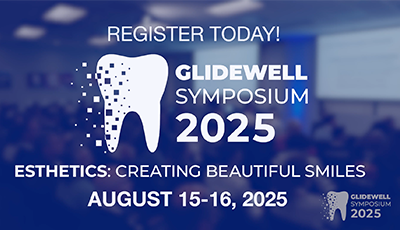Written by: Alan Stern, DDS
In dentistry, stress isn’t an occasional visitor—it’s an uninvited team member. Whether you’ve been practicing for 40 years or four, you’ve probably felt the weight: the pressure to produce, the emotional toll of difficult patients, the burden of financial overhead, and the loneliness that leadership sometimes brings.

Historically, we’ve waited until the cracks appear before addressing them—treating burnout, depression, and anxiety as problems to be managed after the fact. But what if we flipped the script?
Mental fitness is that flip.
Just like physical fitness prevents injury and enhances performance, mental fitness is proactive. It’s the daily training of emotional strength, clarity, and resilience. And in this high-pressure, high-touch profession, it may be the most important skill we develop.
Mental fitness isn’t therapy. It’s not fluff. And it’s not just for “other people.”
It’s the daily discipline of strengthening your emotional core—so you can lead, treat, and live with greater clarity and intention, especially under pressure.
Harvard psychologist Susan David describes this as emotional agility—the ability to respond to challenging situations with flexibility, rather than getting stuck in anger, avoidance, or self-criticism. Martin Seligman, often referred to as the father of positive psychology, introduced the PERMA model: Positive Emotion, Engagement, Relationships, Meaning, and Accomplishment. Together, these pillars form the foundation of thriving—not just surviving.
And Carol Dweck’s book Mindset reminds us that change and growth are possible at any age or stage. You’re not stuck, and neither are your team members.
Mental fitness doesn’t mean you go it alone, either. In fact, Alanism #20 (yes, I have 96 of them): No One Gets There Alone! Coaches, therapists, and even honest friends can help us see our blind spots and grow from them.
We must prepare not only for success—but for failure. Because in dentistry, failure isn’t hypothetical. It’s inevitable.
Our work is a human endeavor. And human endeavors are, by nature, imperfect. Add in the complexities of the oral environment—home care variability, patient microbiomes, biology, or even the occasional and inevitable human error—and the odds of every case turning out flawlessly are slim.
But these outcomes—these “failures”—do not define us.
They don’t mean you’re not a good dentist. They don’t mean you’re not trying hard enough. They mean you’re human.
Let’s stop fearing these outcomes and start preparing for them, mentally and emotionally. Let’s stop letting them shake our identity or sense of worth.
Mental fitness isn’t about doing more. It’s about approaching what you already do with greater awareness and intention.
Here are a few ways to start:
- Take 3 minutes to breathe deeply before your first patient.
- Reframe stress. Instead of “This is a disaster,” try “This is an opportunity to lead.”
- Write down one moment of gratitude at the end of each day.
- Celebrate your wins—yes, even that smooth Class I composite.
- Share a kind word with a difficult patient. You might be the first person who has all week.
- Add humor. Even bad Dad jokes can lift morale—trust me.
But it’s not just about you. It’s about your team.
Create safe spaces for assistants, hygienists, and administrative staff to speak up. Let them see your blind spots and know that their voices matter. And be open to theirs. Feedback must go both ways—and be given and received in a spirit of care.
A phrase I love: “You’re not perfect. Get over it. And neither am I—I’m over it.”
When said with love and humility, it can diffuse tension and strengthen relationships. And when paired with laughter? That’s the magic.
Dentistry is serious business. Humor bonds teams. It breaks tension. It heals. Even my eye-rolling team and patients eventually admitted they appreciated the levity.
Olympians train their minds like they train their bodies. Simone Biles and Michael Phelps have both spoken about the vital role mental health plays in performance and survival.
The U.S. Army developed the Comprehensive Soldier Fitness program because they knew soldiers needed more than muscles—they needed resilience. Business leaders, too, are learning that emotional intelligence, mindfulness, and empathy are not “extras”—they’re leadership essentials.
If it’s true for athletes, soldiers, and CEOs, why not dentists?
We are precision-based professionals operating in emotionally intense, physically confined, and financially complex environments.
Mental fitness isn’t optional. It’s the edge we’ve been missing.
We’ve all heard it: “Your words matter.” And they do. But so does your tone. Your body language. Your presence.
Today’s world is full of messages that can be misread, especially when sent via email or text. There’s no substitute for an empathic voice, eye contact, and real presence.
Amy Cuddy, in her book Presence, explains that the way we carry ourselves not only affects how others perceive us—but how we perform under pressure.
So let’s show up—fully human. Let’s speak with care. Let’s listen with curiosity. And let’s lead with humility.
Mental fitness isn’t soft. It’s strong. It’s proactive. It’s powerful.
And it might just be the missing piece in creating a career—and a life—you love.
ABOUT THE AUTHOR
Alan Stern, DDS, retired from clinical dentistry in 2023 and now operates Better, Richer, Stronger, LLC. He is a dental practice coach, keynote speaker, and author.
His book, Enjoy the Ride, is available on Amazon.
Join his Facebook group, strangely called Better, Richer, Stronger.
He can be reached at alan@betterricherstronger.com.
FEATURED IMAGE CREDIT: Intographics from Pixabay.





